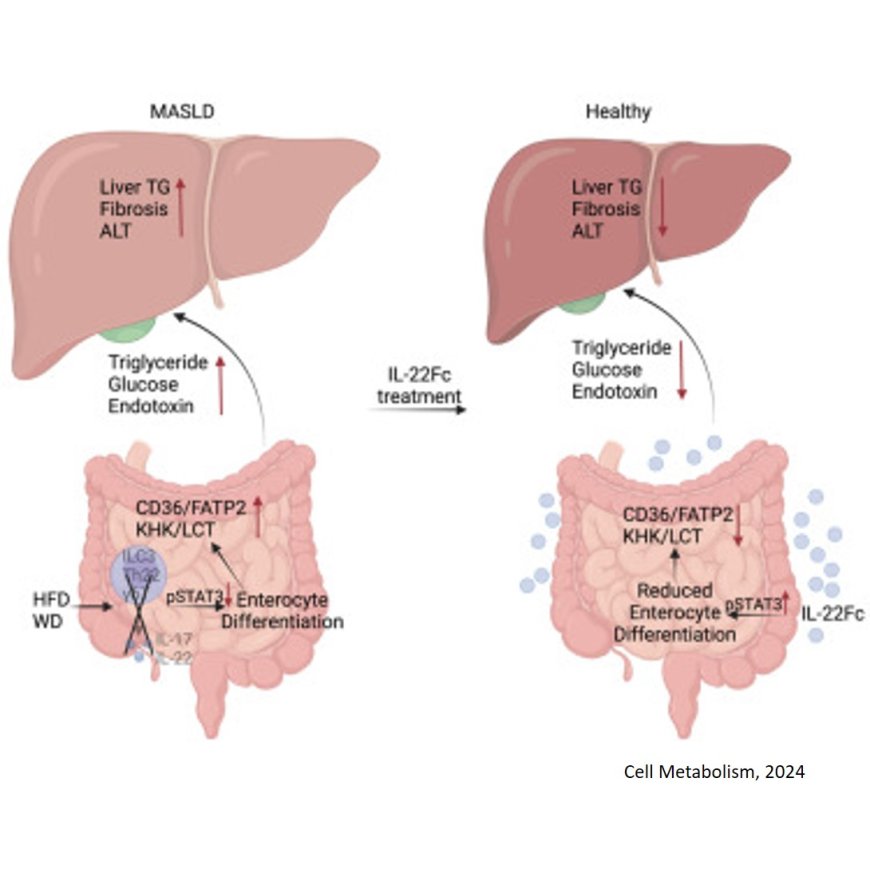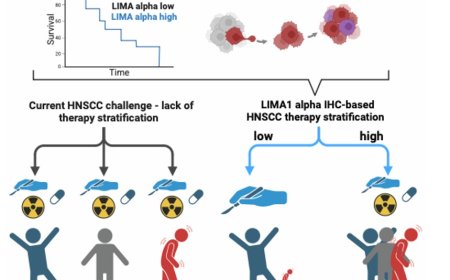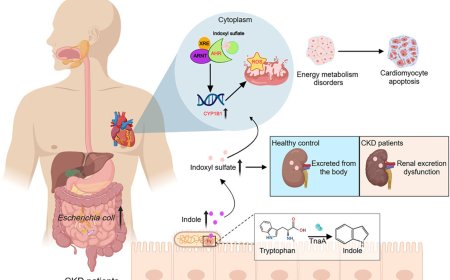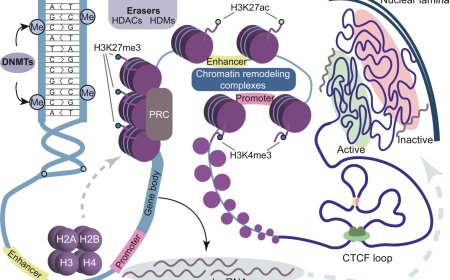Exogenous IL-22 administration resolves MASLD

Consumption of energy-dense diets leads to metabolic dysfunction-associated steatotic liver disease (MASLD).
Defective interleukin-22 (IL-22) signaling has been linked to obesity, diabetes, “gut-liver axis” alterations leading to MASLD pathogenesis.
,
The researchers find that exogenously administered IL-22 resolved MASLD mainly by engaging its intestinal epithelial cells receptor (IL22Ra1), rather than hepatocyte receptors.
The authors also show that activation of STAT3 and inhibition of WNT-β-catenin signaling leads to restoration of diet perturbed intestinal homeostasis.
https://www.cell.com/cell-metabolism/fulltext/S1550-4131(24)00364-4













